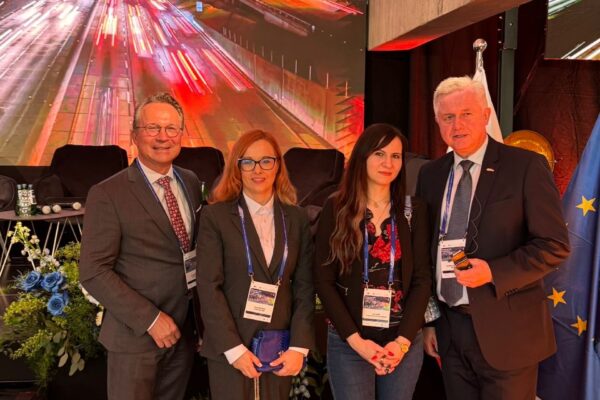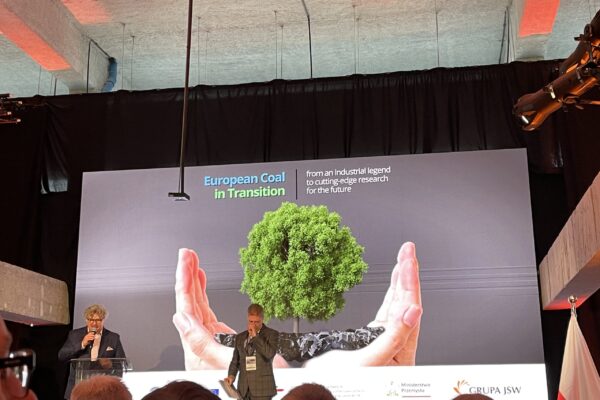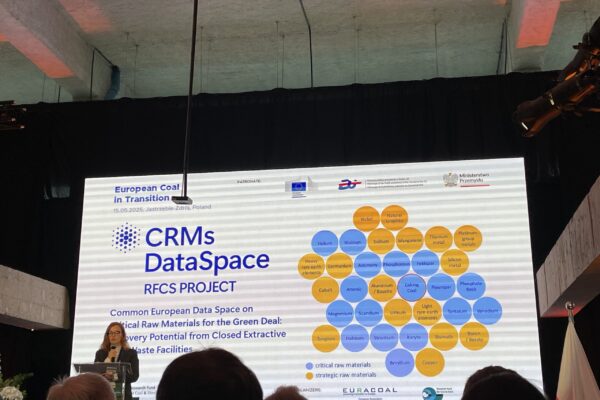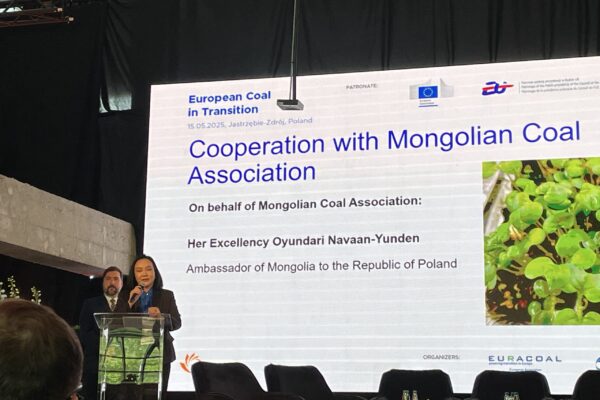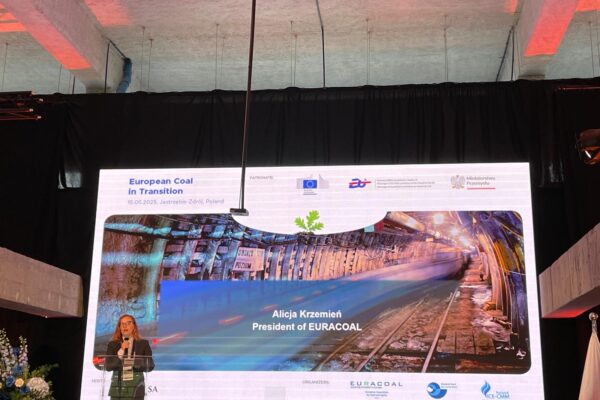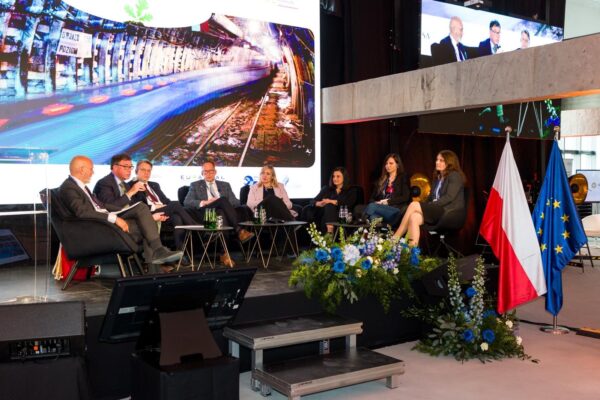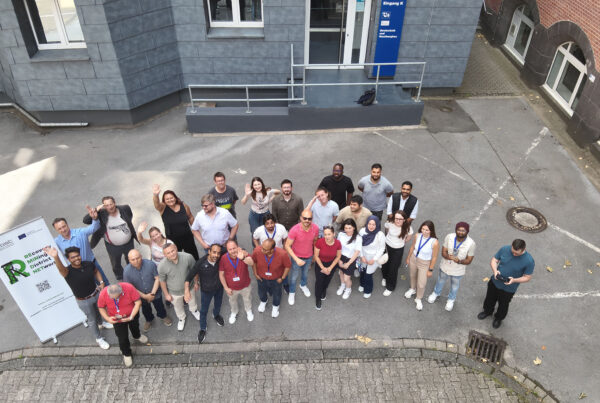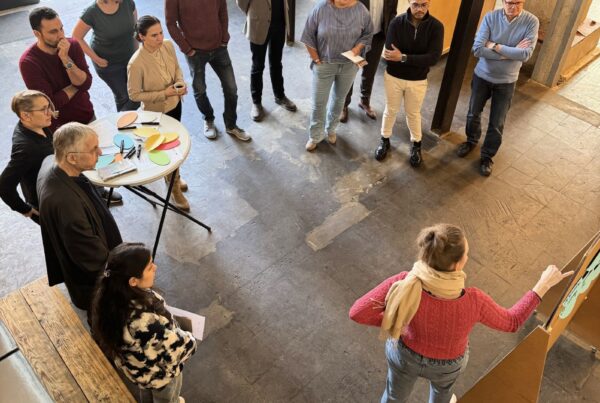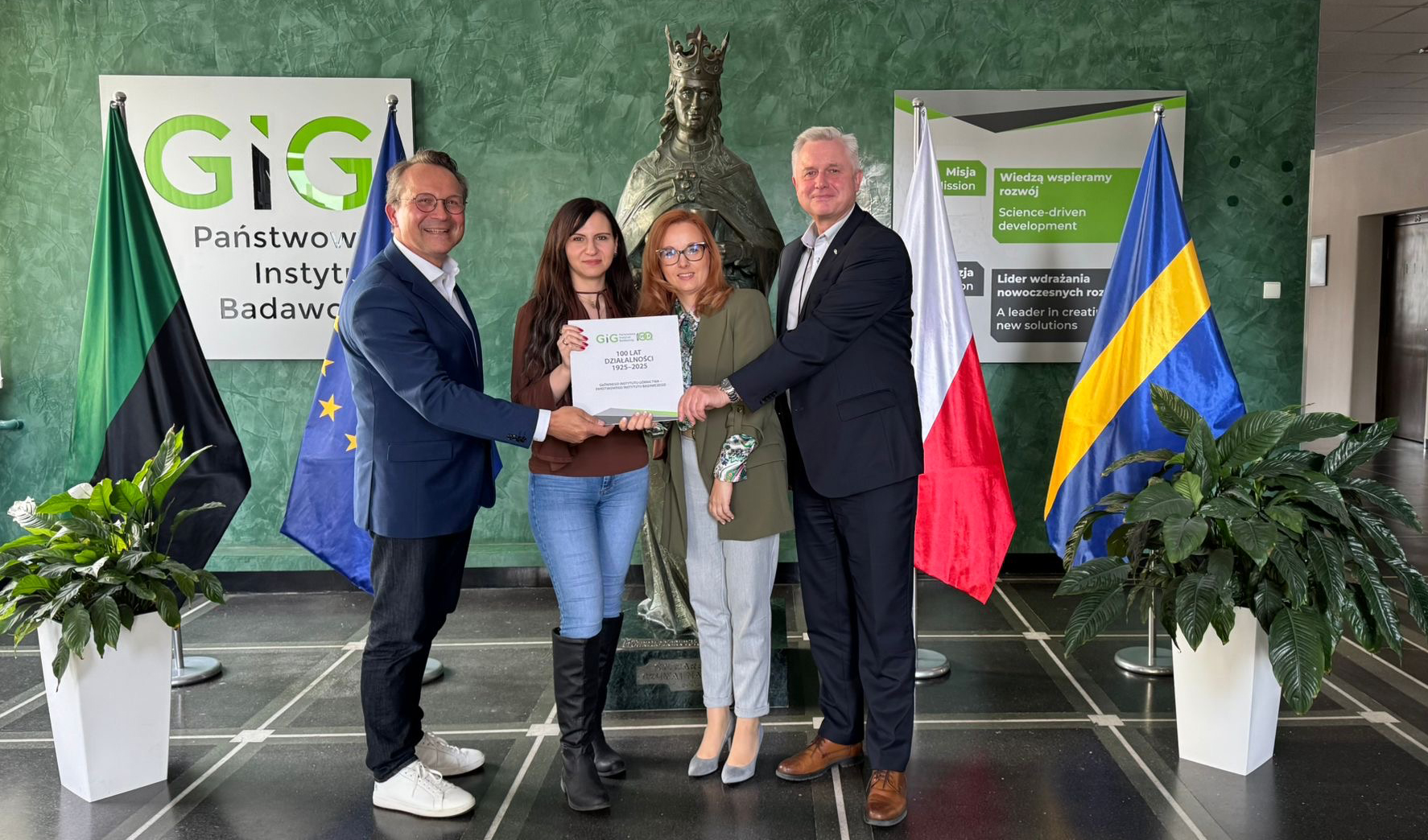
A warm welcome in Katowice: Ulrich Wessel (Member of the Management Board of DMT-Gesellschaft für Lehre und Bildung mbH), Julia Haske (Head of Land Use & Transition at FZN), Alicja Krzemien (Mining Professor for GIG, President EURACOAL) & Jaroslaw Zagorowski (Director GIG)
The trip of Ulrich Wessel (member of the management board of DMT-Gesellschaft für Lehre und Bildung mbH) and FZN scientist Julia Haske (research focus Land use & Transition) to our eastern European neighbors in the Silesian Voivodeship was extremely valuable and profitable. The important event “European Coal in Transition: From an industrial legend to cutting-edge research for the future” was added to a joint professional exchange and discussions on cooperation in international projects.
During the visit to the GIG (Glowny Instytut Gornictwa) on May 14, FZN's relations with the Polish mining institute were further intensified. The GIG, also known internationally as the “Central Mining Institute”, is one of the leading research institutes in the field of mining and the associated environmental and safety issues and has a long history. The GIG - located in Katowice, an important city for the coal industry in Poland - will be celebrating its 100th birthday in June 2025.
Alicja Krzemien (Mining Professor for GIG, President EURACOAL), Jaroslaw Zagorowski (Director GIG), Jan Bondaruk (Deputy Director for Environmental Engineering and Post-Mining GIG) and Jaroslaw Zuwala (Deputy Director R&D, Institute of Energy and Fuel Processing Technology) warmly welcomed the German guests Julia Haske and Ulrich Wessel to the Silesian Voivodeship, which is characterized by the coal and steel industry.
It is obvious that the GIG is looking with great interest at the know-how and wealth of experience of the FZN and the Ruhr region at the meeting: after all, Poland will also undergo major transformation processes in the coming years and is very interested in the experiences with structural change in the Ruhr region. In addition to economic, ecological and social aspects, this also includes the cultural reuse and preservation of industrial culture. The Polish partners also showed great interest in the description of the RAG-Stiftung's approach and responsibility in the post-mining of the German coalfields (Ruhr, Saar and Ibbenbüren). In any case, the transformation of this important industrial region is in full swing in Poland. The closure of mines and industrial plants in Silesia is already resulting in processes similar to those in Germany, for example a shift of jobs from mining to IT.
Regions in transition and European cooperation
On the second day of the visit, May 15, the event „European Coal in Transition: From an industrial legend to cutting-edge research for the future“ was held by the Research Fund for Coal and Steel (RFCS) , which presented innovative approaches to technological research in the coal industry. Jointly organized by EURACOAL and the European Research Executive Agency and supported by the Polish coking coal producer Jastrzębska Spółka Węglowa, the event took place at the Carbonarium 50 kilometers southwest of Katowice. The Carbonarium is a multifunctional exhibition space and museum that conveys knowledge about coal mining.
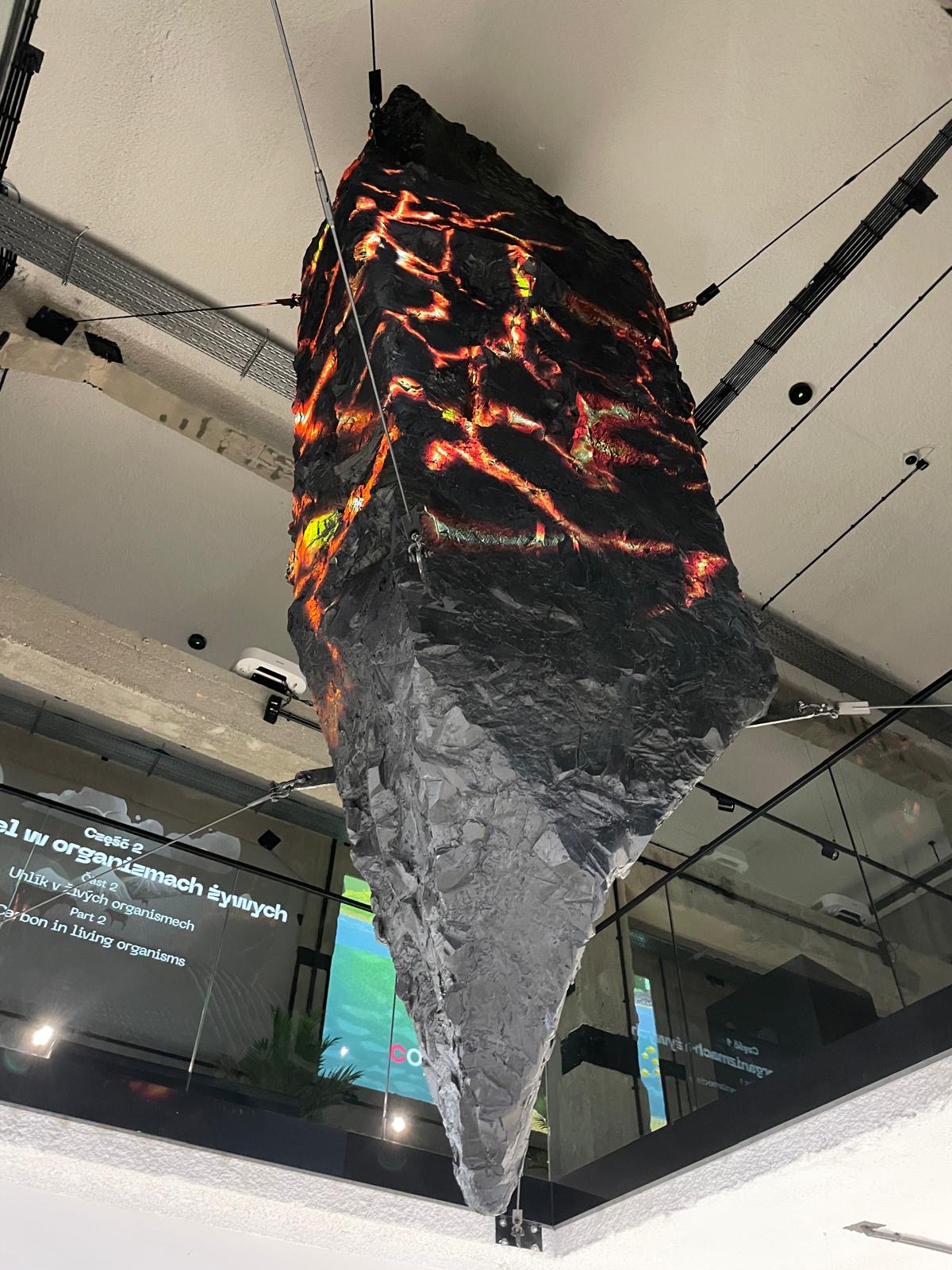
The aim of the event was to highlight the impact of projects supported by the EU Research Fund for Coal and Steel (RFCS) on the sustainable transition of European coal regions and to raise awareness of the Fund's important role in the regional transition towards the objectives of the European Green Deal. The European Green Deal (EGD) is an EU package of measures with the stated aim of making the EU climate neutral by 2050.
The combination of ecological and economic objectives and prospects for coal mining areas after mine closures were highlighted in the part of the event that specifically included RFCS projects for the reuse or new use of coal mining regions. FZN scientist Julia Haske presented the recently approved project “Raising awareness of small local communities in the process of coal mining transition” (RAISING). In line with the project orientation of RAISING, the participation of local communities and stakeholders in transformation processes was considered particularly important in the discussion. In addition to the ongoing RFCS-funded project Green JOBS and the already completed project TRIM4Post-Mining , the participants were introduced to future projects such as “CRMs Data Space” and “MEMO (Methane Monitoring of abandoned coal mines)”.
The event, which was also attended by top-level politicians from Poland, proved that the question of “where to go” after mining, which is relevant for many regions in Europe, and the question of how to positively shape the future in terms of both socio-economics and ecology, is and remains highly topical. The trip to Katowice also highlighted the strong efforts and progress being made towards a sustainable transformation of the coal industries in Europe.
Photos for this news: FZN & GIG


